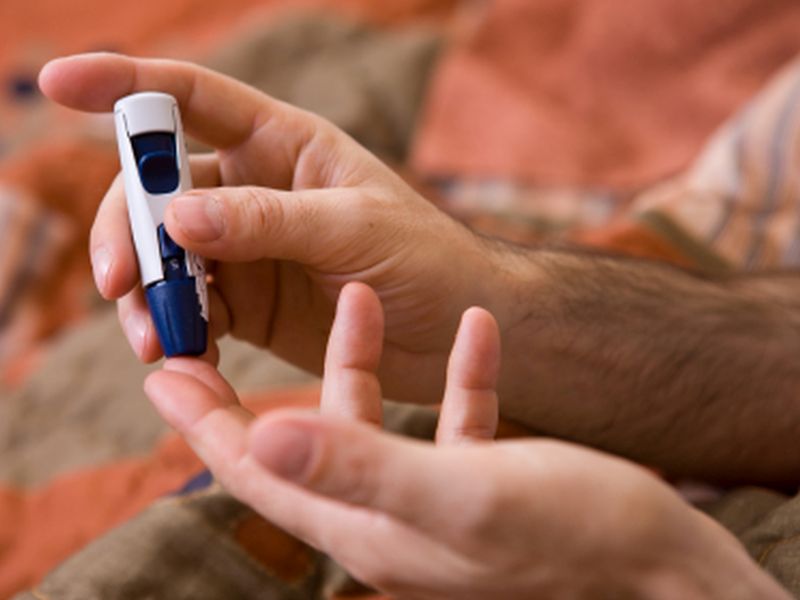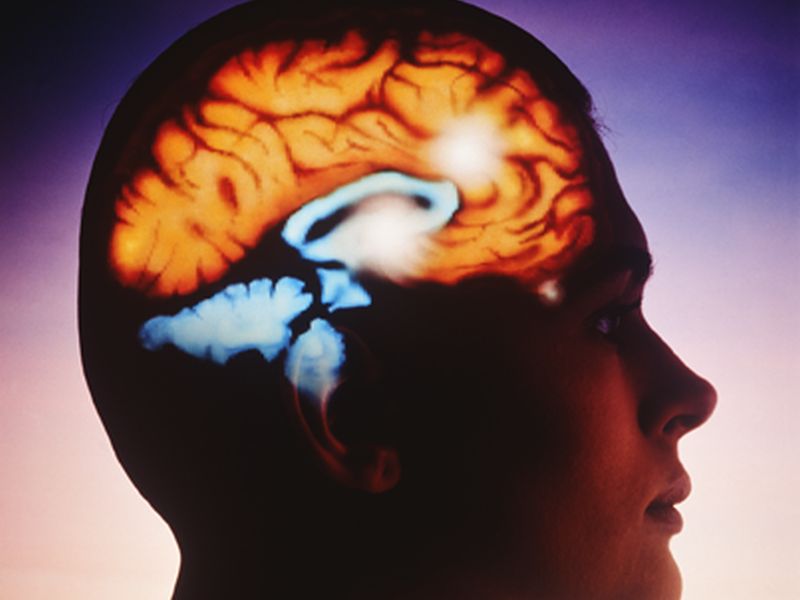| Video recording to improve quality of care |
The Great Place for all lake forest health and fitness | island health and fitness | health and fitness blogs Health and Fitness Blog Information and News.
Friday, 30 October 2015
On The Pulse - 30th October 2015
Memory lapses early sign of Alzheimer's Disease?

Related MedlinePlus Pages: Alzheimer's Disease, Memory, Women's Health via MedlinePlus Health News Read More Here..
NIH Researchers Link Single Gene Variation to Obesity

Related MedlinePlus Pages: Genes and Gene Therapy, Obesity via MedlinePlus Health News Read More Here..
VIDEO: Refusing to make breast cancer pretty
Thursday, 29 October 2015
Feeling Extra Forgetful May Signal Dementia Ahead
Older women who thought their memory was worse than average had greater risk of problems, study found

Source: HealthDay
Related MedlinePlus Pages: Dementia, Memory, Women's Health via MedlinePlus Health News Read More Here..
Links between processed meat and colorectal cancer
IARC was established 50 years ago through a resolution of the World Health Assembly as a functionally independent cancer agency under the auspices of WHO. Its programme of work is approved and financed by its participating states. via WHO news Read More Here..
Personality Changes After Deep Brain Stimulation
Deep Brain Stimulation (DBS) is a well-known and accepted treatment for neurological and psychiatric diseases. It consists of the implantation of electrodes into the brain, which send small electric impulses to specific neurons and pathways.
In Parkinson’s disease (PD), DBS clearly improves patients’ symptoms, functionality and quality of life in the long run. Nevertheless, it seems that the electrodes do not have motor-specific functions. DBS influences mental states and personality and in some cases it can even lead to a “new personality”.
One recent study showed that in 45 PD patients submitted to subthalamic nucleus DBS (one of the most common brain targets in PD) there was a personality change in the direction of increased impulsivity. Surprisingly, relatives were more sensitive to this alteration than patients themselves. The lower sensitivity of the patients to the mood and behavioral changes could be the reason for the complaint: “he/she is no longer the same”.
Yves Agid described that up to 65% of the married (or living with a partner) PD patients experienced a conjugal crisis after the operation. Different reasons could be found for this, but personality changes could clearly play a role.
Are we changing patients’ “identity” by using DBS? Probably yes: we are making them think differently, take risks in a different way and make decisions in a new manner.
But is it only the treatment that changes the patient? In all likelihood, no. The neurotransmitter dopamine – the loss of which is associated with the motor symptoms of PD – has a clear emotional and cognitive role. PD patients present dopamine deficit-related cognitive and emotional changes, that slowly progress at the rhythm of the neurodegeneration.
So, the acute personality change we impose with DBS in PD patients should always be measured against the cognitive and emotional disease-related changes that are biologically determined, and with the psychological changes induced by the diagnosis of a chronic neurodegenerative disease.
The clinical implications of these findings are that personality evaluation should be done both before and after DBS, and informant reports should be considered. Also, before surgery we need to discuss the personality changes risks with the patient and his family and try to manage expectations to minimize the common complaint: “Doctor, My husband is not the same!” and its impact in the familiar and environment.
References
Agid Y, Schüpbach M, Gargiulo M, Mallet L, Houeto JL, Behar C, Maltête D, Mesnage V, & Welter ML (2006). Neurosurgery in Parkinson’s disease: the doctor is happy, the patient less so? Journal of neural transmission. Supplementum (70), 409-14 PMID: 17017560
Frank MJ, Seeberger LC, & O’reilly RC (2004). By carrot or by stick: cognitive reinforcement learning in parkinsonism. Science (New York, N.Y.), 306 (5703), 1940-3 PMID: 15528409
Lewis CJ, Maier F, Horstkötter N, Zywczok A, Witt K, Eggers C, Meyer TD, Dembek TA, Maarouf M, Moro E, Zurowski M, Woopen C, Kuhn J, & Timmermann L (2015). Subjectively perceived personality and mood changes associated with subthalamic stimulation in patients with Parkinson’s disease. Psychological medicine, 45 (1), 73-85 PMID: 25066623
Pham U, Solbakk AK, Skogseid IM, Toft M, Pripp AH, Konglund AE, Andersson S, Haraldsen IR, Aarsland D, Dietrichs E, & Malt UF (2015). Personality changes after deep brain stimulation in Parkinson’s disease. Parkinson’s disease, 2015 PMID: 25705545
Witt K, Kuhn J, Timmermann L, Zurowski M, & Woopen C (2013). Deep Brain Stimulation and the Search for Identity. Neuroethics, 6, 499-511 PMID: 24273620
Image via Image Point Fr / Shutterstock.
via Brain Blogger Read More Here..Beat Seasonal Affective Disorder

It's colder. It's darker. And that's just no fun. If you feel your happiness wane in the winter, you might suffer from Seasonal Affective Disorder (SAD), but it doesn't have to be that way. Here's how to banish those winter blues:
Work out in the morning When it's dark outside in the evening our bodies think its night and become tired, which is why it's so difficult to get to the gym after a day at the office. Beat your body clock by getting up earlier and hitting the gym before work - you'll also have more energy throughout the day.
Stay Hydrated Be mindful to drink water despite the cooler temps. Even if you're not sweating as much as you would be in the summer, you can still become dehydrated. Perspiration isn't the only way to lose body fluids. Huffing and puffing can cause loss of body fluids as well since we lose water and electrolytes through our breath.
Go for a weekend hike It’s still important to get fresh air, so wrap up warm and head out for a long walk with your family or friends. The countryside is beautiful in autumn, and you might be lucky enough to catch a healthy dose of vitamin D from a late burst of sunshine.
Limit bluelight on your devices The short days and long nights can leave us a bit out of sync and looking at screens late at night can further disturb our circadian rhythms, making it hard to get a good night's sleep. Downloading apps that limit bluelight from you devices can help combat this. Try flux for your computer or twilight for your phone. They give your screen an orangey glow that won't trick your body into thinking it's daytime! Getting a full night's sleep will help you feel fresh and full of energy to workout.
Eat seasonal fruits and vegetables When produce is grown in its proper season, under the appropriate growing conditions, it exhibits all of its natural nutrients, making eating healthy a cinch. Studies have shown that some crops can have up to three times more nutrients when grown in season. Seasonal fruits and vegetables don't have to endure as much travel, so they don't lose those vital nutrients.
Drink Tea Drink more tea to warm up for the cooler temperatures. Green tea and black tea contain antioxidants that help ward off diseases during flu season so you can remain healthy and active as the season shifts.
Tips are provided by Ballet and Pilate instructor, Denise The, from Slice Live. www.slicelive.com.
Beat Seasonal Affective Disorder

It's colder. It's darker. And that's just no fun. If you feel your happiness wane in the winter, you might suffer from Seasonal Affective Disorder (SAD), but it doesn't have to be that way. Here's how to banish those winter blues:
Work out in the morning When it's dark outside in the evening our bodies think its night and become tired, which is why it's so difficult to get to the gym after a day at the office. Beat your body clock by getting up earlier and hitting the gym before work - you'll also have more energy throughout the day.
Stay Hydrated Be mindful to drink water despite the cooler temps. Even if you're not sweating as much as you would be in the summer, you can still become dehydrated. Perspiration isn't the only way to lose body fluids. Huffing and puffing can cause loss of body fluids as well since we lose water and electrolytes through our breath.
Go for a weekend hike It’s still important to get fresh air, so wrap up warm and head out for a long walk with your family or friends. The countryside is beautiful in autumn, and you might be lucky enough to catch a healthy dose of vitamin D from a late burst of sunshine.
Limit bluelight on your devices The short days and long nights can leave us a bit out of sync and looking at screens late at night can further disturb our circadian rhythms, making it hard to get a good night's sleep. Downloading apps that limit bluelight from you devices can help combat this. Try flux for your computer or twilight for your phone. They give your screen an orangey glow that won't trick your body into thinking it's daytime! Getting a full night's sleep will help you feel fresh and full of energy to workout.
Eat seasonal fruits and vegetables When produce is grown in its proper season, under the appropriate growing conditions, it exhibits all of its natural nutrients, making eating healthy a cinch. Studies have shown that some crops can have up to three times more nutrients when grown in season. Seasonal fruits and vegetables don't have to endure as much travel, so they don't lose those vital nutrients.
Drink Tea Drink more tea to warm up for the cooler temperatures. Green tea and black tea contain antioxidants that help ward off diseases during flu season so you can remain healthy and active as the season shifts.
Tips are provided by Ballet and Pilate instructor, Denise The, from Slice Live. www.slicelive.com.
via Featured Articles http://www.womensfitness.co.uk/health/1427/beat-seasonal-affective-disorder
Health and Fitness Blog
Tips for a better nights sleep

via Featured Articles http://www.womensfitness.co.uk/health/1426/tips-for-a-better-nights-sleep
Health and Fitness Blog
Tips for a better nights sleep

November issue competitions and offers

WIN A SKIING JACKET FROM ANIMAL
The Soren jacket by Animal (www.animal.co.uk), worth £180, is perfect for hitting the slopes this winter, as it has ergonomically placed lining materials to ensure heat stays in all the key areas, but is released where needed. The fabrics have been carefully selected to ensure functionality is key but that you’ll look super styled, too!
The jacket has zips under the armpits (pit zips) and around the thigh area, so heat can be 'dumped' allowing for a cooler ride. This intelligent garment has taped seams to maximise waterproofing in areas, which are more likely to develop a moist build-up such as the hood, neck and shoulders - leaving you to make the most of the powder!
For your chance to win email your details to competitions@iris-uk.com with ‘ANIMAL’ in the subject title, by 17/11/2015, when three winners will be selected at random.
GET 30% OFF MAGNESIUM FLAKES
Want the secret to better sleep? It might be all about your mineral bathing salts. With an exceptionally calming and relaxing effect, Westlab Magnesium Chloride helps support a restful and peaceful night’s sleep and is an effective and simple way to top up your magnesium levels. An important mineral, Magnesium is used in an amazing 300 reactions in the body, helping to induce sleep, regulate blood pressure and essential for bone health.
Westlab Magnesium Chloride Hexahydrate bath is one of the most efficient ways to increase your magnesium levels and reduce the symptoms of magnesium deficiency. This is because the most effective way to boost Magnesium levels is thought to be transdermally (through the skin).
With a unique oily texture to touch, these calming salts flakes are suitable for use on sensitive skin and skin prone to eczema, psoriasis and dermatitis. For a relaxing at-home transdermal magnesium therapy experience, simply dissolve approximately 250g – 1kg of the salt flakes in a deep bath of 37 degrees. Lay back, relax and allow the salts to work their magic for 20 minutes.
WESTLAB Magnesium Chloride Hexahyrdrate, £8.99 for 1kg
Available online at www.westlab.co.uk and at health stores nationwide. To redeem your 30% discount, enter HFOCT15 at the checkout. Offer expires 17/11/15.
WIN A MONTH’S SUPPLY OF SKINNY SOUPS
Experience exciting and unexpected flavours discovered from worldwide adventures with GLORIOUS! SkinnyLicious soups. Inspired by authentic recipes from around the globe, packed into handy little soup pots full of only the freshest ingredients, these soups are the perfect healthy solution for when you are on the go.
Each soup within the GLORIOUS! SkinnyLicious range is less than 150 calories per portion and less than 2% fat without compromising on taste. There are also vegetarian, vegan, gluten free and dairy free flavours - so there is a GLORIOUS! soup for everybody!
GLORIOUS! are giving three readers the chance to win one month’s supply of GLORIOUS! soup. For your chance to win email your details to competitions@iris-uk.com with ‘GLORIOUS’ in the subject title, by 17/11/2015, when three winners will be selected at random.
GET 20% OFF PROSKINS
Do you want to combat cellulite, reduce water retention and improve leg circulation? Say hello to the Proskins Slim leggings…
Give your legs a hidden workout with these high-performance leggings by wearing them during the day, at the gym or overnight. Proskins Slim leggings (proskins.co) use the same compression technology that is used in performance sportswear and when worn for eight hours a day for 28 days they deliver impressive results and in clinical trials 63% of users saw a reduction in cellulite. As well as helping to reduce the appearance of cellulite, Proskins Slim Leggings also help to improve lymphatic drainage, reduce fluid retention and improve circulation flushing toxins and fluid from the body.
The groundbreaking-patented fabric that they are made from is created using microencapsulated yarn. The fabric contains caffeine to promote fat destruction, vitamin E to prevent the effects of ageing, ceramides to restore and maintain skin’s smoothness, retinol to stimulate collagen production and Aloe Vera to moisturise and increase the firmness of skin. They have been treated with a silver-bacterial treatment for extended wear, odour reduction and improved garment durability. H&F favourites, Mel C and Danni Minogue, are even said to be fans!
For 20% off, head to proskins.co and enter HF20 at the checkout. Offer expires 31/12/15.
via Featured Articles http://www.womensfitness.co.uk/news/1425/november-issue-competitions-and-offers
Health and Fitness Blog
November issue competitions and offers

WIN A SKIING JACKET FROM ANIMAL
The Soren jacket by Animal (www.animal.co.uk), worth £180, is perfect for hitting the slopes this winter, as it has ergonomically placed lining materials to ensure heat stays in all the key areas, but is released where needed. The fabrics have been carefully selected to ensure functionality is key but that you’ll look super styled, too!
The jacket has zips under the armpits (pit zips) and around the thigh area, so heat can be 'dumped' allowing for a cooler ride. This intelligent garment has taped seams to maximise waterproofing in areas, which are more likely to develop a moist build-up such as the hood, neck and shoulders - leaving you to make the most of the powder!
For your chance to win email your details to competitions@iris-uk.com with ‘ANIMAL’ in the subject title, by 17/11/2015, when three winners will be selected at random.
GET 30% OFF MAGNESIUM FLAKES
Want the secret to better sleep? It might be all about your mineral bathing salts. With an exceptionally calming and relaxing effect, Westlab Magnesium Chloride helps support a restful and peaceful night’s sleep and is an effective and simple way to top up your magnesium levels. An important mineral, Magnesium is used in an amazing 300 reactions in the body, helping to induce sleep, regulate blood pressure and essential for bone health.
Westlab Magnesium Chloride Hexahydrate bath is one of the most efficient ways to increase your magnesium levels and reduce the symptoms of magnesium deficiency. This is because the most effective way to boost Magnesium levels is thought to be transdermally (through the skin).
With a unique oily texture to touch, these calming salts flakes are suitable for use on sensitive skin and skin prone to eczema, psoriasis and dermatitis. For a relaxing at-home transdermal magnesium therapy experience, simply dissolve approximately 250g – 1kg of the salt flakes in a deep bath of 37 degrees. Lay back, relax and allow the salts to work their magic for 20 minutes.
WESTLAB Magnesium Chloride Hexahyrdrate, £8.99 for 1kg
Available online at www.westlab.co.uk and at health stores nationwide. To redeem your 30% discount, enter HFOCT15 at the checkout. Offer expires 17/11/15.
WIN A MONTH’S SUPPLY OF SKINNY SOUPS
Experience exciting and unexpected flavours discovered from worldwide adventures with GLORIOUS! SkinnyLicious soups. Inspired by authentic recipes from around the globe, packed into handy little soup pots full of only the freshest ingredients, these soups are the perfect healthy solution for when you are on the go.
Each soup within the GLORIOUS! SkinnyLicious range is less than 150 calories per portion and less than 2% fat without compromising on taste. There are also vegetarian, vegan, gluten free and dairy free flavours - so there is a GLORIOUS! soup for everybody!
GLORIOUS! are giving three readers the chance to win one month’s supply of GLORIOUS! soup. For your chance to win email your details to competitions@iris-uk.com with ‘GLORIOUS’ in the subject title, by 17/11/2015, when three winners will be selected at random.
GET 20% OFF PROSKINS
Do you want to combat cellulite, reduce water retention and improve leg circulation? Say hello to the Proskins Slim leggings…
Give your legs a hidden workout with these high-performance leggings by wearing them during the day, at the gym or overnight. Proskins Slim leggings (proskins.co) use the same compression technology that is used in performance sportswear and when worn for eight hours a day for 28 days they deliver impressive results and in clinical trials 63% of users saw a reduction in cellulite. As well as helping to reduce the appearance of cellulite, Proskins Slim Leggings also help to improve lymphatic drainage, reduce fluid retention and improve circulation flushing toxins and fluid from the body.
The groundbreaking-patented fabric that they are made from is created using microencapsulated yarn. The fabric contains caffeine to promote fat destruction, vitamin E to prevent the effects of ageing, ceramides to restore and maintain skin’s smoothness, retinol to stimulate collagen production and Aloe Vera to moisturise and increase the firmness of skin. They have been treated with a silver-bacterial treatment for extended wear, odour reduction and improved garment durability. H&F favourites, Mel C and Danni Minogue, are even said to be fans!
For 20% off, head to proskins.co and enter HF20 at the checkout. Offer expires 31/12/15.
Would you take a genetic test that could lay bare your destiny?
Would you take a genetic test that could lay bare your destiny?
Keep Kids Safe This Halloween
Doctors' group offers tips for avoiding fright-night injuries

Source: HealthDay
Related MedlinePlus Page: Children's Health via MedlinePlus Health News Read More Here..
Despite Advances, Type 2 Diabetics Still Face Elevated Death Risk
That's why it's imperative to eat right, control blood pressure and cholesterol, quit smoking, doctors say

Source: HealthDay
Related MedlinePlus Page: Diabetes Type 2 via MedlinePlus Health News Read More Here..
Ovarian Cancer Drug Shows Promise with Tough-To-Treat Prostate Tumors
In small study, olaparib targeted gene mutation in men who had failed other therapy, researchers report

Source: HealthDay
Related MedlinePlus Pages: Genes and Gene Therapy, Prostate Cancer via MedlinePlus Health News Read More Here..
Why More Painkiller Addicts Are Using Heroin, Too
Interviews confirm desire for cheaper, more plentiful substitute

Source: HealthDay
Related MedlinePlus Pages: Heroin, Prescription Drug Abuse via MedlinePlus Health News Read More Here..
Research Gives Clues to Why Some Benefit More from Drug for Bipolar Disorder
Key brain cell differences could play a role in lithium's effectiveness, researchers say

Source: HealthDay
Related MedlinePlus Page: Bipolar Disorder via MedlinePlus Health News Read More Here..
Injected Drug Approved for Melanoma Skin Cancer
Source: HealthDay
Related MedlinePlus Page: Melanoma via MedlinePlus Health News Read More Here..
E-Cigarette Use Highest Among Young Adults, U.S. Report Finds
Source: HealthDay
Related MedlinePlus Pages: E-Cigarettes, Health Statistics via MedlinePlus Health News Read More Here..
Marriage May Aid Recovery from Heart Surgery
Greater risk of dying or disability seen among divorced, separated, widowed

Source: HealthDay
Related MedlinePlus Pages: After Surgery, Heart Surgery via MedlinePlus Health News Read More Here..
People with Schizophrenia Face Much Higher Risk of Early Death
Source: HealthDay
Related MedlinePlus Page: Schizophrenia via MedlinePlus Health News Read More Here..
Doctors Can Fine-Tune Estimates of Delivery Dates
Simple test of cervix length would help, researchers say

Source: HealthDay
Related MedlinePlus Pages: Childbirth, Women's Health via MedlinePlus Health News Read More Here..
Narcotic Painkiller Use in Adolescence May Raise Risk of Adult Addiction
Study found those less experienced with illegal drugs were more likely to abuse narcotics later

Source: HealthDay
Related MedlinePlus Pages: Drug Abuse, Pain Relievers via MedlinePlus Health News Read More Here..
Back to the Future – Part 4
| Chris Preece writes his own homage to the famous trilogy, set 30 years from now in an English village... Related items from OnMedica ‘No improvement’ in community mental health care Point-of-care diagnostics needed to curb antimicrobial resistance NHS England announces first 29 vanguard sites Public wants NHS to prioritise 7-day GP access Speed up plans for new patient safety investigation body, urge MPs |
Doctors sceptical of new ‘Ofsted-style’ NHS ratings system
| But they welcome plans for better co-ordination with hospitals to cut GP workload Related items from OnMedica GPs must display CQC rating in practices Government ‘must abandon simplistic GP ratings’ CCGs to be compared using ‘traffic-light’ metrics NHS must hold CCGs accountable for poor diabetes care BMA and College demand halt in CQC inspections |
Statins may reduce effectiveness of flu jab
| Two studies suggest statins hamper immune response particularly in the elderly Related items from OnMedica Statins may slow prostate cancer progression in advanced disease New alternative to statins gets regulatory green light Experts question industry-funded study showing benefits of Tamiflu Statins and dietary changes have saved 20,000 lives Flu jab linked to fewer hospitalisations |
Hunt pledge: ‘no junior doctors will lose out’
| Health secretary says BMA has created ‘unnecessary anger’ amongst doctors Related items from OnMedica Junior contract changes would scupper GP recruitment plans Junior doctors vote to ditch further negotiations on new contract Hunt urges BMA to return to negotiations on new contract Poll overwhelmingly backs juniors’ concerns over contract proposals Torrent of angry doctors flood to join BMA |
High hopes for targeted prostate cancer drug
| Olaparib shown to slow tumours in patients with specific DNA mutations Related items from OnMedica Scientists find five different types of prostate cancer Fewer but higher doses of radiotherapy good for prostate cancer Radiotherapy implants boost chances of prostate cancer remission Scientists unveil 'Rosetta Stone' of prostate cancer Statins may slow prostate cancer progression in advanced disease |
Two EU doctors with poor English disciplined under new language rules
| Italian doctor suspended and Polish doctor must work under supervision Related items from OnMedica Half of EU doctors UK-bound for work fail English skills How to overcome language barriers in healthcare? European doctors face GMC language check New language checks on doctors start in summer More healthcare professionals set to face English language proficiency tests |
Side Effects of Proton Pump Inhibitors

Related MedlinePlus Pages: GERD, Heartburn, Kidney Diseases, Medicines via MedlinePlus Health News Read More Here..
'Milestone' prostate cancer drug
Wednesday, 28 October 2015
Anaesthetic blunts painful memories recalled before you go under
Tuberculosis mortality nearly halved since 1990
To reduce TB’s overall burden, detection and treatment gaps need to be closed, funding shortfalls filled and new diagnostics, drugs and vaccines developed, according to the report. via WHO news Read More Here..
Globally, an estimated two-thirds of the population under 50 are infected with herpes simplex virus type 1
Herpes simplex virus is categorized into 2 types: herpes simplex virus type 1 (HSV-1) and herpes simplex virus type 2 (HSV-2). Both HSV-1 and HSV-2 are highly infectious and incurable. HSV-1 is primarily transmitted by oral-oral contact and in most cases causes orolabial herpes or “cold sores” around the mouth. HSV-2 is almost entirely sexually transmitted through skin-to-skin contact, causing genital herpes. via WHO news Read More Here..